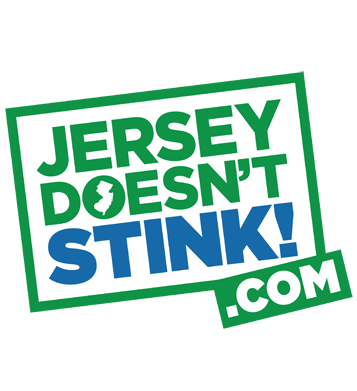Give Up Plastic (and Paper) Bags
Neither paper or plastic is a good choice when checking out at the grocery store. Twelve million barrels of oil were used to make the 88.5 billion plastic bags consumed in the US last year. And it takes four times more energy to make paper bags! The best choice is reusable shopping bags made of cotton, nylon or durable, mesh-like plastic. Put a few reusable shopping bags in your car so you have them handy on your next shopping trip. And if you happen to forget  your reusable bag (as we all do!), choose paper if you will recycle it or plastic if you will reuse or recycle it.
your reusable bag (as we all do!), choose paper if you will recycle it or plastic if you will reuse or recycle it.
Give Up Meat
Going meatless, even just once a week, may reduce your risk of chronic preventable conditions like cancer, cardiovascular disease, diabetes and obesity. It can also help reduce your carbon footprint and save precious resources like fresh water and fossil fuel. In place of chicken, beef, or pork, just look for protein from beans, legumes, eggs, nuts and seeds instead. The water needs of livestock are tremendous, far above those of vegetables or grains. An estimated 1,800 to 2,500 gallons of water go into a single pound of beef, while tofu produced in California requires 220 gallons of water per pound. On average, about 40 calories of fossil fuel energy go into every calorie of feed lot beef in the U.S. Compare this to the 2.2 calories of fossil fuel energy needed to produce one calorie of plant-based protein. Moderating meat consumption is a great way to cut fossil fuel demand. Visit Meatless Monday for more information on decreasing your meat consumption, and for great recipe ideas!
Give Up Paper Towels
No matter how you look at it, paper towels create waste. During your next trip to the grocery store, buy some reusable microfiber towels, which grip dirt and dust like a magnet, even when they get wet. When you are finished with them, toss the towels in the wash and reuse them again and again. They are even great for countertops and mirrors. When you absolutely have to use disposable towels, look for recycled products. If every household in the United States replaced just one roll of virgin fiber paper towels (70 sheets) with 100 percent recycled ones, we could save 544,000 trees.
Stop Buying Bottled Water
Did you know that it takes 26 bottles of water to produce the plastic container for a one-liter bottle of water, and that doing so pollutes 25 liters of groundwater? Don’t leave a trail of plastic water bottles in your wake! Stop buying bottled water. Use reusable water bottles instead made from materials like stainless steel or aluminum that are not likely to degrade over time. You can find aluminum bottles in most stores now, for as low as $15. If you choose a plastic water bottle, check the number on the bottom first: Plastics numbered 3, 6 & 7 could pose a health threat to you, so look for plastics numbered 1, 2, 4 or 5.
Give Up 2 Degrees
Electric power plants are the country's largest industrial source of the pollutants that cause global warming. By snuggling under a blanket on the couch on a snowy winter night instead of turning up the heat, or enjoying the breeze from a fan in the height of summer instead of turning up the air conditioning, you can save pounds of pollution, as well as some money off your utility bills. Set your thermostat in winter to 68 degrees F (20° C) or less during the daytime and 55 degrees F (13° C) before going to sleep or when you are away for the day. And during the summer, set thermostats to 78 degrees F (26° C) or more.
Stop Receiving Unwanted Catalogs
Each year, 19 billion catalogs are mailed to American consumers. All those catalogs require more than 53 million trees and 56 billion gallons of wastewater to produce -- and many of us don't even know how we got on so many mailing lists! So grab that stack of catalogs piling up on your coffee table and clear out the clutter. Visit CatalogChoice.org to put a stop to unwanted catalogs. Within 10 weeks, your mailbox will be empty of unwanted catalogs. A less cluttered mailbox means less pollution, less waste and less of the pollution that causes global warming.
Adapted from NRDC Simple Steps February 2010
Keep it fresh!
- Lauren









